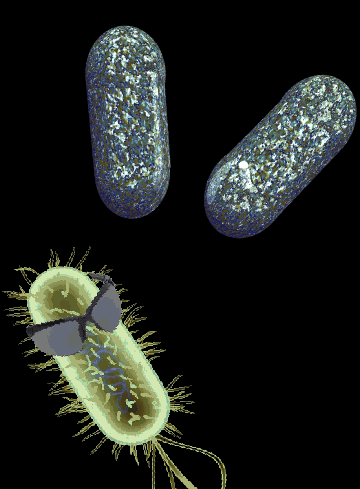Custom bugs build from gas

Researchers in the US have published a new report showing gases emitted in industrial pollution - including the greenhouse gas CO2 - can be converted into acetone and isopropanol using engineered bacteria.
The method is a carbon-negative alternative to current processes for manufacturing these chemicals from petroleum or natural gas.
The breakthrough comes from work in microbial fermentation - which is used in the food industry to make yoghurt, beer and other products. It now appears to be a promising approach for manufacturing a wide variety of chemicals from non-fossil fuel sources.
Most work in this field has relied on microbes that ferment sugars; however, the use of sugars as a raw material is costly and raises the total greenhouse gas emissions of the production process.
Certain bacteria, however, are capable of gas fermentation - converting gases such as CO2 into more complex molecules. This has opened up the opportunity for gases found in industrial emissions or generated from biomass and municipal waste to be turned into useful products.
In the latest study, the bacterium Clostridium autoethanogenum was genetically modified to synthesise chemicals it does not normally produce.
The authors demonstrate the production of acetone and isopropanol - two chemicals with a combined global market of over US$10 billion - with high efficiency and selectivity in a pilot experiment at the industrial scale.
Whereas existing processes for manufacturing these chemicals from petroleum or natural gas contribute to climate change, the new system fixes more carbon than it emits and therefore has a negative carbon footprint.
The authors suggest that their sustainable alternative for acetone and isopropanol manufacture can be adapted to produce a diverse array of other useful chemicals.








 Print
Print